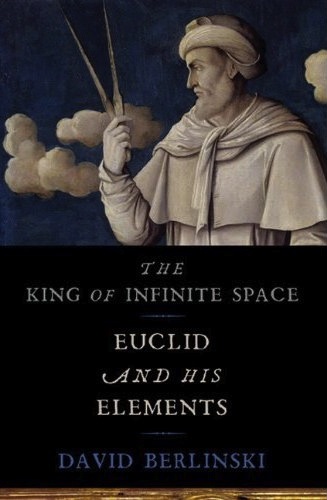Berlinski’s Next Frontier: Euclid

This is going to be good. Our own David Berlinski has produced another winner, judging from the rave advance review in Publishers Weekly. His new book, The King of Infinite Space: Euclid and His Elements (Basic), will be out in January. Says PW:
In this brief, accessible foray, popular math/science writer Berlinski (Newton’s Gift) breathes life into an ancient mathematician and the world of axioms and theorems he created — a geometric world that became the basis for much of modern math, from analytic geometry to the idea of curved space-time. To Berlinski, Euclid’s fourth-century B.C., 13-volume Elements is a manifestation of his “intense demand for an idealized world.” In small, precise steps, Euclid spells out five axioms, or assumptions, about points, lines, and angles, and what it means when two things are “equal” — everything needed to describe shapes in space. Berlinski writes, “In every generation, a few students have found themselves ravished by the Elements”; so too will even the most math-averse be enthralled by Berlinski’s rich, vibrant language: Euclid’s “shady” fifth axiom, concerning parallel lines, is “the little lunatic locked in a padded cell,” “all mad glitter and glow”; equilateral triangles are “squat brutes” that “do nothing and go nowhere,” while isosceles triangles “have the power to soar.” Berlinski’s book succeeds not only as a history of geometry but also as an exploration of the power of ideas, masterfully replacing cold abstraction with humor and humanity.
We’ll keep you posted.
